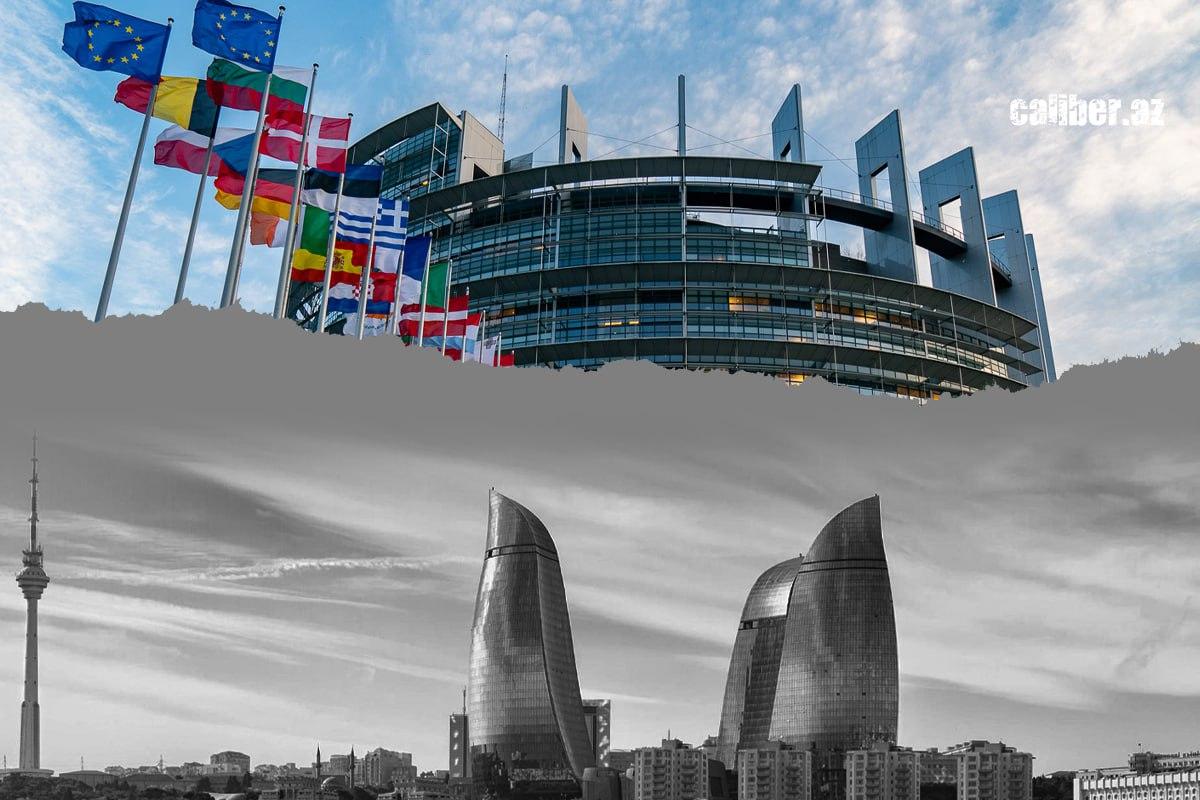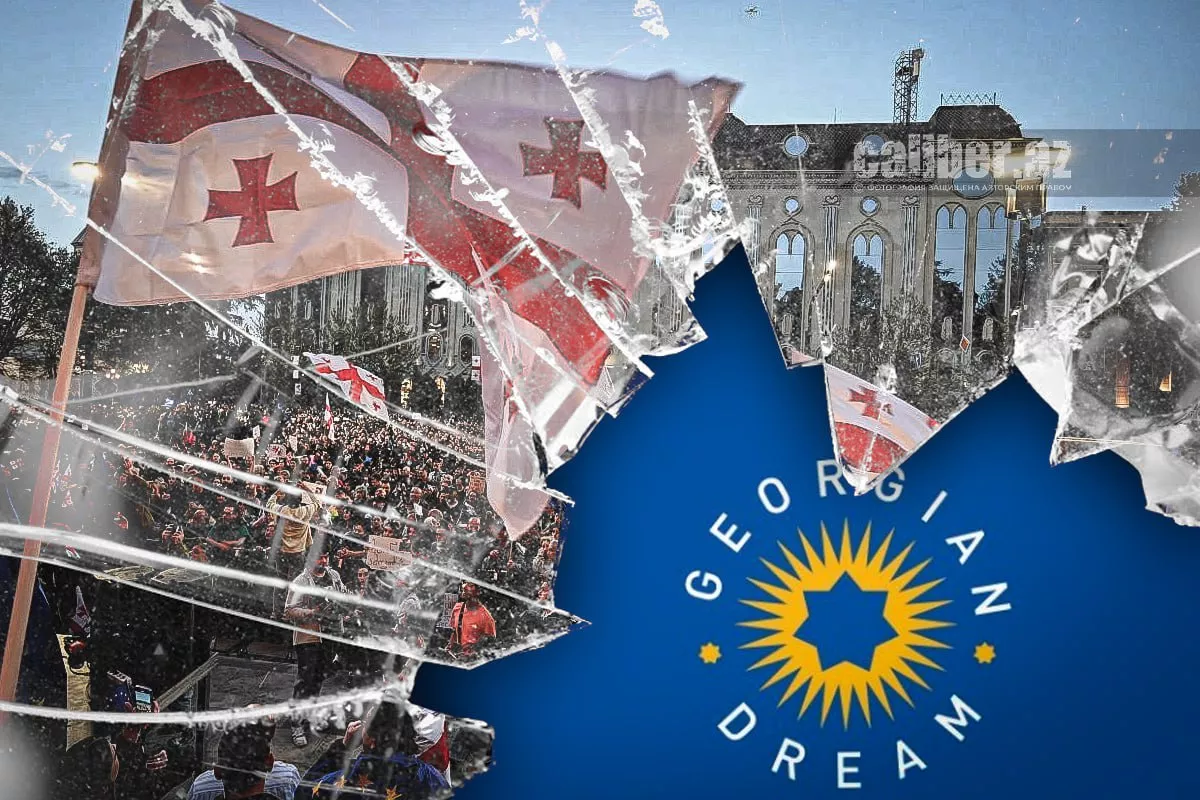European Parliament vs. Georgia: A diplomatic storm Article by Vladimir Tskhvediani
On February 13, the European Parliament adopted yet another anti-Georgian resolution titled "On the Further Deterioration of the Political Situation in Georgia." This non-binding resolution is not the first aimed at Georgia as a sovereign state. Last year, the European Parliament initiated similar anti-Georgian resolutions regarding the adoption of laws on "foreign agents" and the ban on LGBT propaganda, as well as the non-recognition of the results of the parliamentary elections on October 26, 2024. As a result, the Georgian government announced on November 28, 2024, the suspension of negotiations on EU membership.
Relations between Georgia and the EU continue to deteriorate. The European Parliament is exerting pressure on Georgia and interfering harshly in its internal affairs. The reasons for this are also clear. Georgia presents a dangerous precedent for the entire "European project," which aims to completely nullify the sovereignty of national states. Before Georgia, small countries that were "blessed" with promises of EU membership obediently allowed themselves to be subjected to the mockery of Brussels bureaucracy and the leadership of key EU member states, often fulfilling European demands that went directly against their national interests. In the case of Georgia, for the first time, a small country with EU candidate status has stood up against the EU's dictate, and this example could be contagious.
The resolution adopted by the European Parliament on February 13 recognizes former Georgian president Salome Zourabichvili as the "legitimate president." The resolution calls on the EU not to recognize the Georgian Dream government's authority, labelling it as "self-proclaimed." It also calls for sanctions against the leaders of the ruling Georgian Dream party, senior government officials, judges, and "regime-aligned media outlets."
The European Parliament, in its resolution, calls on Georgia to conduct new parliamentary elections as a prerequisite for future cooperation. According to the European Parliament's resolution, the elections must take place within the next few months, in an improved electoral environment, under the control of an independent and impartial electoral administration, with monitoring by international observers. In this way, Georgia is being urged to forgo its sovereignty and hold elections under external control, so that political forces imposed from outside the country can prevail.
There is nothing new in the European Parliament's recognition of the bankrupt politician Salome Zourabichvili as the "legitimate president." A similar resolution was passed by the European Parliament regarding Belarus in 2020. At that time, the European Parliament did not recognize the re-election of Alexander Lukashenko, who received 80% of the vote, but instead recognized Sviatlana Tsikhanouskaya, who garnered 10% of the vote, as the "legitimate president of Belarus." The European Parliament also called for the earliest possible new presidential elections in Belarus, under international monitoring and under the control of the OSCE.

Since then, Belarus has held another presidential election on January 26, 2025, which also resulted in the re-election of Alexander Lukashenko. The European Parliament declared its non-recognition of these elections even before they took place. In other words, the European Parliament still considers Sviatlana Tsikhanouskaya, whose existence is practically forgotten by most Belarusians, to be the "president of Belarus." Or will soon forget her, especially considering that funding for opposition NGOs and media in Belarus through USAID has been cut off, leading to the closure of many such organizations. With the adoption of the European Parliament's resolution on Georgia, the campaign of "legitimate presidents" according to the European version now includes two figures: Tsikhanouskaya and Zourabichvili.
The European Parliament's resolution of February 13 calls on the President of the Council of Europe to invite Salome Zourabichvili to represent Georgia at the next session of the Council of Europe and the summit of the European Political Community. Salome Zourabichvili was also invited as the "legitimate president" to the Munich Security Conference, which began on February 14, and this "fact" has been highlighted by pro-Western liberal media. However, such trips do not offer significant prospects for a political comeback for Georgia's pro-Western opposition. It is expected that, like Tsikhanouskaya before her, Zourabichvili will attend international events as the "legitimate president" for some time, until the organizers lose interest.
In the post-Soviet space, the European Parliament shows bias not only toward Georgia and Belarus but also toward Azerbaijan. In October 2024, the European Parliament adopted a completely pro-Armenian and anti-Azerbaijani resolution titled "On the Situation in Azerbaijan and Relations with Armenia," in which it called for the cessation of any technical and financial support to Azerbaijan that could contribute to strengthening its military potential, and urged EU member states to freeze all military equipment exports to Azerbaijan. Logically, if the European Parliament truly desired peace in the South Caucasus, it should have similarly called for the cessation of arms supplies to Armenia. However, such an expectation is unlikely.

Unlike Azerbaijan, Georgia, and Belarus, Armenia enjoys a favoured status with the EU. As early as March 2024, the European Parliament adopted a resolution proposing to consider granting Armenia EU candidate status. This same resolution condemns the alleged "invasion of Azerbaijani armed forces into internationally recognized Armenian territory" (although it is impossible to establish where such internationally recognized territory lies in the border areas without delimitation and demarcation of the border, which Yerevan has consciously obstructed). The demand from Azerbaijan to open the Zangezur Corridor is interpreted by the European Parliament as a "threat to Armenia's territorial integrity and sovereignty." However, during all the years of Armenia’s occupation of Azerbaijani Karabakh, the European Parliament never once condemned either the occupation itself or the ethnic cleansing carried out by Armenia.
The double standards of the European Parliament regarding sovereign states have long been evident. Therefore, it is unsurprising that after the adoption of the anti-Georgian resolution on February 13, the ruling party in Georgia, Georgian Dream, declared on the same day that it is impossible to take the European Parliament seriously today. The European Parliament has essentially become an instrument of international ultra-liberal forces, often referred to as the "Deep State," aimed at undermining national states.

"We would like to comment on the resolution adopted today by the European Parliament against Georgia and the government elected by the Georgian people. On March 26, 2023, the future U.S. president, Donald Trump, stated during a meeting with voters: 'This is the decisive battle. Either the ‘deep state’ will destroy America, or we must destroy the ‘deep state.' Since his election as president, Donald Trump has actively engaged in this decisive battle, and we wish him success in defeating the 'deep state.' In response to the resolution adopted today, we would like to declare that either the 'deep state' will destroy the European Union, or the European Union will find the strength to somehow break free from the influence of the 'deep state.' Just as we wish President Trump victory in his fight against the 'deep state,' we also wish Europe to avoid the destructive influence of the 'deep state.' In this struggle, we stand with patriotically-minded Europeans. We would also like to remind the public of yesterday's statement by the Prime Minister of Hungary, Viktor Orbán: 'European institutions can no longer be taken seriously.' In our opinion, unfortunately, it is impossible to take the European Parliament seriously today," the Political Council of the Georgian Dream party stated.
The statement by Prime Minister Irakli Kobakhidze suggests that Georgia will simply ignore yet another resolution from the European Parliament directed against the country. "This is already the sixth resolution adopted by the European Parliament that is directed against our country. It is a very sad event, but it will not harm our country, our statehood, or the independence of the media in Georgia... I would like to remind you once again that until 2012, our country had a regime that acted precisely under the instructions of these forces. These forces today initiate certain resolutions in the European Parliament, and their signature move is attacks on independent media. It was this regime that, at that time, seized both private TV channels such as 'Imedi,' 'Rustavi 2,' and other private broadcasters, as well as OTV. This happened between 2004 and 2012 under the instructions of the same forces that today initiate resolutions in the European Parliament. Based on this, the attack on independent media is the hallmark of these forces, the so-called Deep State, the same 'global war party.' Therefore, such acts do not surprise us. I will remind you once again that this is already the sixth resolution of the European Parliament against our country. It is a very sad event, but it will not harm our country, our statehood, or the independence of the media in Georgia," stated the Prime Minister of Georgia.
Vladimir Tskhvediani, Georgia, for Caliber.Az








